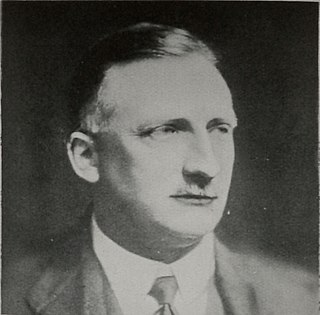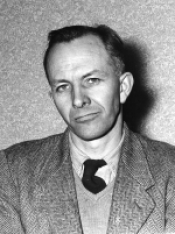Related Research Articles

Sir Oswald Ernald Mosley, 6th Baronet, was a British aristocrat and politician who rose to fame during the 1920s and 1930s when, having become disillusioned with mainstream politics, he turned to fascism. He was a member of parliament and later founded and led the British Union of Fascists (BUF).

The British Union of Fascists (BUF) was a British fascist political party formed in 1932 by Oswald Mosley. Mosley changed its name to the British Union of Fascists and National Socialists in 1936 and, in 1937, to the British Union. In 1939, following the start of the Second World War, the party was proscribed by the British government and in 1940 it was disbanded.

The National Socialist League (NSL) was a short-lived Nazi political movement in the United Kingdom immediately prior to the Second World War.

John Warburton Beckett was a British politician who was a Labour Party MP from 1924 to 1931. During the 1930s, he joined the fascist movement, first in the British Union of Fascists and later as a founder of the National Socialist League. During World War II, he was interned in Britain.
The Nordic League (NL) was a far-right organisation in the United Kingdom from 1935 to 1939 that sought to serve as a co-ordinating body for the various extremist movements whilst also seeking to promote Nazism. The League was a private organisation that did not organise any public events.

Rotha Beryl Lintorn Lintorn-Orman was a British political activist and World War I veteran who founded the British Fascisti, the first avowedly fascist movement to appear in British politics.

Edward Jeffrey Hamm was a leading British fascist and supporter of Oswald Mosley. Although a minor figure in Mosley's prewar British Union of Fascists, Hamm became a leading figure after the Second World War and eventually succeeded as leader of the Union Movement after Mosley's retirement.

Alexander Raven Thomson, usually referred to as Raven, was a Scottish politician and philosopher. He joined the British Union of Fascists in 1933 and remained a follower of Oswald Mosley for the rest of his life. Thomson was considered to be the party's chief ideologue and has been described as the "Alfred Rosenberg of British fascism".
The British People's Party (BPP) was a British far-right political party founded in 1939 and led by ex-British Union of Fascists (BUF) member and Labour Party Member of Parliament John Beckett.
Robert Forgan was a British politician who was a close associate of Oswald Mosley.
Alan Vivien Hancock was one of the early leaders of the Racial Preservation Society (RPS). He was formerly a member of the British Union of Fascists (BUF) which was formed in 1932 by ex-Labour government minister Sir Oswald Mosley and was a union of several small, extreme nationalist parties. Hancock formed part of a three-man leadership team in the RPS who came from the BUF, alongside Ted Budden and Jimmy Doyle.
The English National Association (ENA) was a political group active in the United Kingdom during the Second World War. It was accused of having fascist sympathies.

Jorian Edward Forwood Jenks was an English farmer, environmentalism pioneer and fascist. He has been described as "one of the most dominant figures in the development of the organic movement".

Robert Byron Drury Blakeney, generally known as R. B. D. Blakeney, was a British Army officer and fascist politician. After a career with the Royal Engineers, Blakeney went on to serve as President of the British Fascists.
British fascism is the form of fascism which is promoted by some political parties and movements in the United Kingdom. It is based on British ultranationalism and imperialism and had aspects of Italian fascism and Nazism both before and after World War II.

The Union Movement (UM) was a far-right political party founded in the United Kingdom by Oswald Mosley. Before the Second World War, Mosley's British Union of Fascists (BUF) had wanted to concentrate trade within the British Empire, but the Union Movement attempted to stress the importance of developing a European nationalism, rather than a narrower country-based nationalism. That has caused the UM to be characterised as an attempt by Mosley to start again in his political life by embracing more democratic and international policies than those with which he had previously been associated. The UM has been described as post-fascist by former members such as Robert Edwards, the founder of the pro-Mosley European Action, a British pressure group and monthly newspaper.
Neil Lanfear Maclean Francis Hawkins was a British writer and politician who was a leading proponent of British fascism in the United Kingdom both before and after the Second World War. He played a leading role in the British Union of Fascists and controlled the organisational structure of the movement.

The British Fascists was the first political organisation in the United Kingdom to claim the label of fascism, formed in 1923. The group had little ideological unity apart from anti-socialism for much of its existence, and was strongly associated with British conservatism. William Joyce, Neil Francis Hawkins, Maxwell Knight and Arnold Leese were amongst those to have passed through the movement as members and activists.

Robert Row (1915–1999) was an English fascist from Lancaster, a member of Oswald Mosley's British Union of Fascists (BUF) who was detained by the British government under Defence Regulation 18B during the Second World War. After the war, he wrote and edited British fascist publications and remained a believer in Mosley until his death.
References
- ↑ Action , 15 February 1940, p. 1
- ↑ J. V. Gottlieb, Feminine Fascism: Women in Britain's Fascist Movement, London: I.B.Tauris, 2003, p. 324
- ↑ S. Dorrill, Blackshirt, London: Penguin, 2007, p. 326
- ↑ R. Benewick, Political Violence and Public Order, London: Allen Lane, 1969, p. 211
- ↑ T.P. Linehan, British Fascism, 1918-39: Parties, Ideology and Culture, Manchester University Press, 2000, p. 112
- ↑ Dorrill, Blackshirt, p. 391
- ↑ Benewick, Political Violence and Public Order, p. 291-2
- ↑ Dorrill, Blackshirt, p. 505
- ↑ G. Macklin, Very Deeply Dyed in Black, London: IB Tauris, 2007, p. 14
- ↑ Peter Barberis, John McHugh, Mike Tyldesley, Encyclopedia of British and Irish Political Organizations , London: Continuum International Publishing Group, 2005, p. 194
- ↑ Dorrill, Blackshirt, p. 566
- ↑ Robert Skidelsky, Oswald Mosley, Macmillan, 1981, p. 490
- ↑ Dorrill, Blackshirt, p. 580
- ↑ Gordon Stridiron, Blackshirts in Geordieland, London: Black House Publishing Ltd, 2017, pp. 182-183
- ↑ "I Remember the Blackshirts: The Battle of Cable Street 1936". Looking for Tommy Moran. Blogspot. 25 April 2015. Retrieved 15 June 2019.